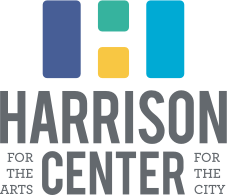Art Dish Chef's Statements: Youssef Boudarine
By controlling the contents of a meal, chefs can work to control the appetite, tantalizing it, teasing it, letting it flow then damning it up. In doing so, they guide emotions, with numerous foods and flavors having a great deal of effect on how people feel.
Having crafted a number of culinary creations, including a 13-tier cake for the former Emir of Qatar and his daughter upon the latter's wedding within Al Wajba Palace, a Marie Antoinette-themed cake for the pop singer Madonna upon the occasion of her 55th birthday, and numerous other fanciful foods, this is a quality of the profession that Chef Youssef Boudarine knows well.
A long way from his position at the renowned Ladurée in Paris, his commitment to others remains consistent as he further deconstructs boundaries. He sees the chef’s authority over food as a means to create inclusion and connection. Making a point of being personal, he's helped make the dessert menus of numerous local restaurants, including Bluebeard, Commission Row, and others, all while hosting affordable pastry pop-ups and event catering around the city through his business, J'adore Pastry.
In July, collaborating with artist Eric Lubrick for the Harrison Center's July Art Dish, the two examined what binds people together through food and art.
Lubrick's photographs of old modes of communication, such as radios, fractured by flowers are brimming with nostalgia.
With their vintage designs and pastel tones, they invite viewers to glance upon an idyllic reflection of times past. Yet, the experience ends there, with the rest of the work's emphasis being engaged with by the mind. Intentionally distant, one is left unable to be fully immersed in such a realm of interconnected relationships, as the dreamy and peaceful past dissipates as one backs up from the frame. This separation from the scene is completed by other images in Lubrick's exhibition, with his photographs of exploding teacups pointing to the death of a more delicate and personal time.
In an art gallery, wherein so many are snapping photographs with their phones or simply brushing past pieces upon the wall with little regard for the people that made them, the reminiscent and floral feelings of Lubrick's exhibition “Sender/Receiver” work to become an intellectual pre-meal palette cleanser that allows Chef Boudarine to truly highlight how food can work to foster a feeling of community.
Yet this is not the only connection between these two creatives, with them both drawn to natural elements and new ways of thinking about their crafts. In describing some of the processes behind how he makes such sought-after sweets, Chef Boudarine stated that he's, surprisingly, "not a dessert person at all,” saying, "I don't eat desserts at all; I try it, good, send it." He first began focusing on desserts when he moved to America, remarking, “I feel like that's what's missing a lot in the country, most of the dessert [has] you eat like a half pound of sugar every time."
Advocating for the avoidance of artificial additives, Chef Boudarine hopes to “break the sugar thing” that we have going on here in America, specifically stating that “in a lot of my desserts at Bluebeard, I don't even use sugar." Using cake as an example, he further explained that he seeks the sweetness of specific fruits, such as strawberries, to serve as substitutes for sugar and generate the desired flavor in his desserts. He also tries never to use food coloring, bringing up his creation of a red velvet cake he made earlier in the day, which was comprised of "beats, salad juice, and some raspberry powder," as a perfect example of how much more rich and defined desserts can be when one distances themselves from more conventional crutches.
The novelty of these natural elements certainly doesn't seem to diminish his soaring success. Whether he's hosting J’adore Pastry pop-ups at the Stutz Building with his business partner and friend, former restaurant manager and event planner Ariel Faye, or cooking right within the homes of Hoosiers across the state, Chef Boudarine makes one thing clear: before presentation, plating, or anything else, "people before food, that's my philosophy."
As an immigrant from Morocco who grew up amidst impoverished circumstances, he finds that whatever he does now is because of how he had to live. Originally wanting to go to art school but not being able to afford to move to a new city, he attended three years of culinary school simply because it was cheap, with his entire education only costing 60 dollars. Given how much it means to him and how much it elevated his quality of life, he approaches food with immense gratitude, but even more so to those who make and eat it. Alluding to the likes of BODHI, a Thai craft cocktail bar and bistro that has been passed down within three generations, and Fernando’s, which, through the husband and wife that own it, offers a unique blend of both Mexican and Brazilian cuisine, Chef Boudarine notes that we always "need to open our mind" to immigrants, not simply people who don't come from Indian or the United States, but people with differing perspectives, cultural backgrounds, "go to it, learn from it” he advises.
Never bringing personal problems to the public or the kitchen, he always engages with the world with joy, leading with happiness and the goal of surrounding himself with people "who will get you inspired." Elaborating upon how this positive finds its place within the kitchen, he said, "I just try to bring the joy I had when I was little with nothing, to keep that joy the same even when I have more." He most certainly brought joy to the audience at Art Dish, with his creativity helping make what was one of the Harrison Center's most captivating events to date.



